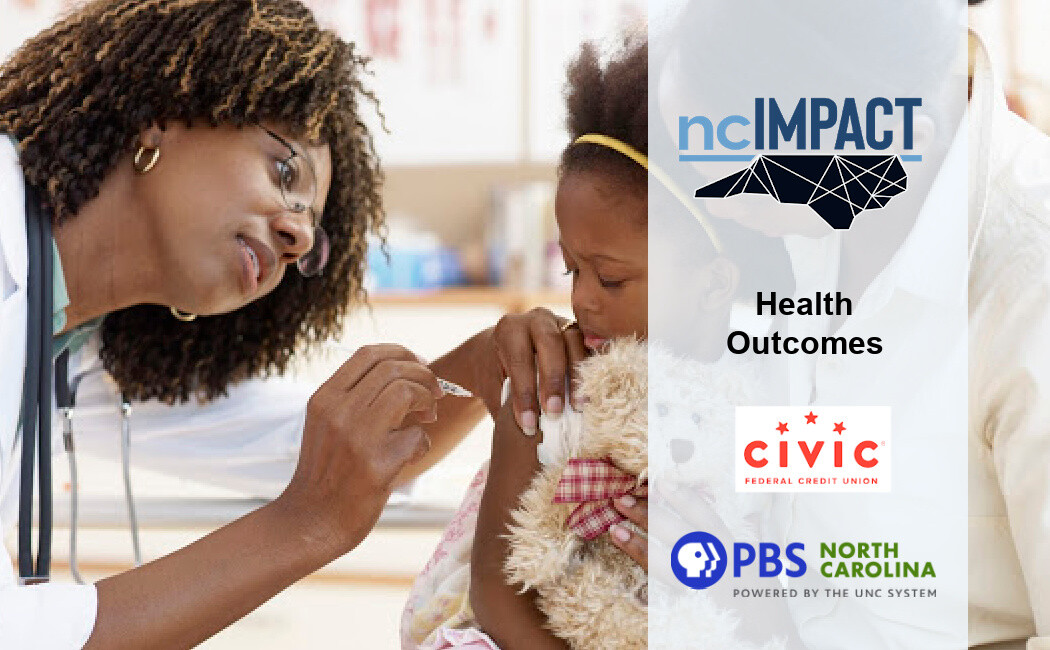Access to Healthcare and Improving Health Outcomes (Blog)
The Highland community in Gaston County, a primarily African American neighborhood, struggled with a lack of access to affordable, healthy foods and healthcare. The Highland residents formed the Highland Neighborhood Association and the Healthier Highland initiative, which enables them to form additional partnerships and empowers them to drive change based on their needs.

The Challenge
Health disparities are notable differences between the health outcomes of groups of people based on social or demographic factors such as race or gender. They arise out of historic issues facing marginalized groups, known as social determinants of health. North Carolina’s Health Equity Report outlines the five major determinant areas: neighborhood and built environment, economic stability, health and health care, education, and social and community context. The report emphasizes food access, environment, and healthcare access as the major issues within those five determinants affecting many underserved North Carolinians.
Gaston County, North Carolina represents one of many communities across the state that encountered difficulties as the dominant industry changed. Once a predominantly textile industry area, Gaston County had to transition their workforce into new industries. Communities across the state struggled with this transition over the years, and difficult transitions can contribute to issues with social determinants of health such as a lack of stable jobs and healthcare access. The Highland community in Gaston County, a primarily African American neighborhood, struggled with a lack of access to affordable, healthy foods and healthcare. The Highland Health Center, a clinic of Kintegra Health, served the Highland Community but realized that without community relationships the presence of the health center was not enough to ensure access to healthcare.
The Solution
Community Centered Health is a model offered by the Blue Cross Blue Shield of North Carolina Foundation. The approach focuses on empowering communities to change the upstream causes of poor health outcomes. Healthier Highland, a partnership between the community and Kintegra Health, was one of the pilot programs. They chose to focus on addressing factors that contribute to obesity. In this partnership, members work to build community supports and a healthier culture around activity and eating. Kintegra Health hired a community member to help build relationships between Highland residents and their healthcare provider.
The key to the Healthier Highland initiative is the engagement of Highland residents in the work. Highland residents formed the Highland Neighborhood Association, which allows them to collectively form additional partnerships and empowers them to drive change based on their needs. Healthier Highland achievements include a community garden, improvements to parks, additional lighting, and new housing. The Healthier Highland initiative also receives funding from the BUILD Health challenge, which recognizes communities that “apply bold, upstream, integrated, local, and data-driven (BUILD) approaches to improve health in communities that are adversely affected by upstream factors.”
The Players
The Highland Neighborhood Association partners with HealthNet Gaston, CaroMont Health, Kintegra Health, Gaston Department of Health and Human Services, and the City of Gastonia. The community-centered health model is supported by the Blue Cross and Blue Shield of North Carolina Foundation. The Highland Neighborhood Association also receives recognition and funding from the BUILD Health Challenge. The key partners are members of the community, as the goal of community-centered health is for community members to be empowered to partner with others to solve the upstream issues facing their communities.
The Promise
The Healthier Highland partnership adapted to the COVID-19 pandemic, which disproportionately affects African Americans. Kintegra Health turned their mobile dental clinic into a mobile COVID-19 testing site, which visits the Highland Neighborhood once per week. To combat the food access struggles that the pandemic exacerbated, faith organizations partnered with the Highland Neighborhood Association to distribute healthy food. The neighborhood association also partnered with the local library to provide kits and free meals for parents to assist their children with online learning.
Source: BlueCross BlueShield of North Carolina Foundation
The community-centered health model from Blue Cross and Blue Shield of North Carolina Foundation appears in nine communities in the state: Buncombe, Caswell, Edgecombe, Gaston, Guilford, McDowell, Montgomery, Nash, and Watauga Counties. Each community focuses on issues ranging from access to healthcare and healthy food, to healthy birth outcomes, housing, and broadband access. Participating communities receive grants, technical support, and evaluation to further understand the impacts of the community-centered health model across different geographic regions and areas of focus.



